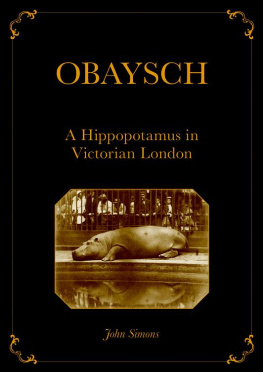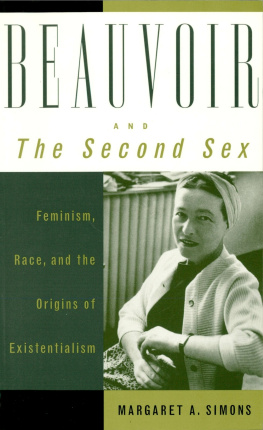
Moderatus
MODERATUS
Moderatus was an Elizabethan romance, probably the first published work of the sixteenth-century Welsh gentleman Robert Parry; it was produced in 1595 by the bookseller, publisher, and printer Richard Jones. In this volume John Simons offers in modern typography an edition of this now-scarce text, with explanatory notes and an extensive introduction that places the work in its historical context. He also presents what biographical information is known about the author of Moderatus and what is known of the books publication history, and discusses such pertinent issues as the travel experience of Elizabethans, their knowledge of other languages than English, and their experience of translating and translations. Simons demonstrates how works like Moderatus do impel us to look more carefully at the inter-relationships of writers and readers and teach us a good deal about the habits of mind which those readers brought to more familiar texts.
This edition of Moderatus is the inaugural volume of a new series of texts, which offers good reading editions of a range of early modern prose fiction.
Non-Canonical Early Modern Popular Texts
In recent years it has become broadly accepted that the central texts of English literature dont provide adequate materials for the critical study of the history of literary production and readership, a subject of growing interest. However, the availability of other texts, particularly from the early modern period, remains very limited. This series is designed to meet the demand for modern editions of noncanonical texts, concentrating on the period C.1580-C.1650.
First published 2002 by Ashgate Publishing
Reissued 2018 by Routledge
2 Park Square, Milton Park, Abingdon, Oxon OX14 4RN
711 Third Avenue, New York, NY 10017, USA
Routledge is an imprint of the Taylor & Francis Group, an informa business
Copyright John Simons 2002
The editor has asserted his moral right under the Copyright, Designs and Patents Act, 1988, to be identified as the editor of this work.
All rights reserved. No part of this book may be reprinted or reproduced or utilised in any form or by any electronic, mechanical, or other means, now known or hereafter invented, including photocopying and recording, or in any information storage or retrieval system, without permission in writing from the publishers.
Notice:
Product or corporate names may be trademarks or registered trademarks, and are used only for identification and explanation without intent to infringe.
Publishers Note
The publisher has gone to great lengths to ensure the quality of this reprint but points out that some imperfections in the original copies may be apparent.
Disclaimer
The publisher has made every effort to trace copyright holders and welcomes correspondence from those they have been unable to contact.
A Library of Congress record exists under LC control number: 2001048710
ISBN 13: 978-1-138-72742-7 (hbk)
ISBN 13: 978-1-315-19034-1 (ebk)
A number of people have given me invaluable assistance in the preparation of this edition. Professor Maldwyn Mills lent me a copy of the Bodleian text many years ago with a view to making Moderatus the basis of my doctoral thesis. I eventually worked on another topic but I am very grateful to Maldwyn for his generosity then and his continued generosity and support throughout my career. Dr Mike Pincombe of the University of Newcastle and Dr Bruce Gibson of the University of Liverpool were kind enough to check and improve my translations from Latin and Greek and to offer suggestions on the sources of some of the material dealt with in the notes. Julia Hedley of Edge Hill College patiently and painstakingly prepared the camera-ready copy. Georgianna Ziegler of the Folger Library provided information on the provenance of the Folger text and Leonard Macdonald checked my readings of the signatures in the same copy. I am also pleased to acknowledge the support of Edge Hill College of Higher Education in providing funds to meet the incidental expenses associated with the production of this text.
This edition of Moderatus is the first in a new series of texts, which is intended to offer good reading editions of a range of early modern prose fiction. The different texts will be edited so as best to bring out their specific characteristics and, above all, so as to maximize their value to readers who, otherwise, would find it difficult to study them. This means that editorial choices as to the extent of textual apparatus, old or new spelling, and critical commentary have not been prescribed in advance and will vary from text to text according to the specific features of that text in relation to its readers.
Despite the increasing tendency to look to the contemporary, the early modern period has retained its status in the commonly acknowledged canon of English literature. Indeed, the development of the critical practice of New Historicism has kept it as one of the central fields of literary studies. However, when we consider what the canon of the early modern looks like we see that it is based on a very limited range of texts. These are largely drawn from the corpus of drama and verse. The vast body of prose fiction which was published during the reigns of Elizabeth I and James I has, with a very few exceptions, largely been ignored. It may well be that the neglect of early modern prose fiction - in university English Literature courses at least - is currently even more marked than it was only twenty years ago.
There may be two reasons for this. The first is that the study of prose fiction has, in the main, developed as a study of the novel. Elizabethan and Jacobean texts do not fit easily into this model and have, therefore, been either ignored completely or partially appropriated as proto-novels. The second is that the vast industry of the great Victorian editors and bibliographers and their pupils of the early part of the last century was, for various reasons, largely concerned with drama and, to a lesser extent, poetry. This means that in preparing texts for a more general readership (for example, for undergraduates), subsequent editors have had massive resources on which to draw in these genres but relatively little in the field of prose fiction. Where such resources have existed they have often been in obscure and scarce privately printed editions which matched the obscurity and scarcity of the original texts themselves. Students who do not have access to the small number of libraries that have holdings of early modern texts or to the STC microfilm collection have very little chance to see early modern prose fiction. Access to on-line texts is also by no means universal.
But even then, the needs of students in particular are not necessarily well served by the availability of plain texts either on-line or in the original. Sensible annotation which offers an explanation of, for example, the classical tags that are a characteristic feature of early modern prose is necessary in order to open up the text to critical discussion. Furthermore, in the cases of some texts, the bibliographical work of the editor enables the reader to understand often crucially important matters of textual detail or history which would other wise elude them and therefore impoverish their reading. The texts in this series will be edited so as to offer sufficient material to satisfy advanced scholars in the field but they will be presented in such a way as to be accessible to a more general reader and, especially, to undergraduates.








